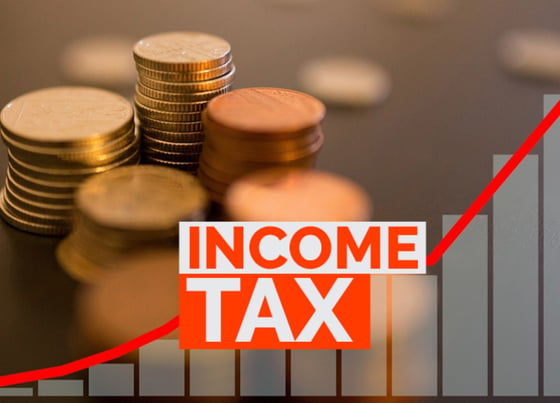Tax Consultancy Services
Expert tax consultancy for businesses, ensuring compliance and resolving legal complications efficiently.


The Goods and Services Tax (GST) Act is a comprehensive piece of legislation that regulates the imposition of GST in various jurisdictions. Below are key details and salient features derived from the GST Act:
1. Introduction to GST: GST is a single tax on the supply of goods and services, right from the manufacturer to the consumer. It replaces multiple indirect taxes previously applicable in India, such as VAT, service tax, and excise duty.
2. Types of GST: The GST Act categorizes GST into three main types: - Central Goods and Services Tax (CGST): Levied by the Central Government on intrastate supplies. - State Goods and Services Tax (SGST): Levied by the State Governments on intrastate supplies. - Integrated Goods and Services Tax (IGST): Levied on interstate supplies by the Central Government, encompassing both CGST and SGST.
3. Registration: Businesses whose aggregate turnover exceeds the prescribed threshold limit must obtain GST registration. This is crucial for functioning legally and availing of input tax credits.
4. Filing Returns: Registered taxpayers must file periodic returns, which include details of sales, purchases, and output tax liability. Failure to comply can lead to penalties and fines.
5. Input Tax Credit (ITC): GST allows businesses to reclaim the tax paid on inputs, referred to as Input Tax Credit. Proper documentation and compliance are necessary for availing of ITC benefits.
6. GST Rate Structure: Different categories of goods and services are taxed at varying rates, usually classified into four main slabs: 0%, 5%, 12%, 18%, and 28%. Essential goods often have lower rates, while luxury items attract higher rates.
7. Composition Scheme: The GST Act provides for a composition scheme aimed at small businesses and startups, allowing them to pay tax at a fixed percentage of their turnover rather than the regular rates.
8. Anti-Profiteering Rules: To ensure that the benefits of GST are passed on to consumers, the Anti-Profiteering Authority was established under the GST Act. This authority investigates allegations of unfair pricing due to GST implementation.
9. Invoicing and Payment: The GST Act stipulates specific rules for invoicing, requiring businesses to issue GST-compliant invoices with necessary details, such as GSTIN, HSN codes, and total value of supply including tax.
10. Compliance and Enforcement: The Act empowers tax authorities to conduct audits, checks, and inspections to ensure compliance. It defines the penalties applicable for various offences like tax evasion, incorrect returns, and failure to keep records.
11. Levy and Collection of Tax: The act lays down rules for determining when the tax is levied, with specific provisions regarding the time of supply, place of supply, and valuation of goods and services.
12. Appeals and Revision: There are processes for taxpayers to appeal against decisions made by tax authorities, including provisions for advance ruling, revision of orders, and procedural safeguards. The implementation of the GST Act has transformed the indirect tax landscape in India, aiming for transparency, simplification of tax structure, and elimination of the cascading effect of tax on tax. Understanding these details is vital for businesses operating under GST to ensure compliance and optimize tax liabilities.
INCOME TAX
The Income Tax Act of India is a comprehensive legislation that governs the taxation system in the country. Implemented in 1961, this Act delineates the rules and regulations concerning the assessment, collection, and enforcement of income tax obligations on individuals, companies, and various other entities. Understanding the nuances of this Act is crucial for taxpayers and financial professionals alike. Below are some critical details pertaining to the income tax structure as expounded in the Income Tax Act: ###
1. Types of Income Tax The Income Tax Act categorizes income into five primary heads, each with specific provisions for tax computation. These are: - Salary Income: Income earned from employment, including wages, salaries, and any additional compensation. - Income from House Property: Income derived from renting out residential or commercial properties, allowing for deductibles on property tax and mortgage interest. - Profits and Gains of Business or Profession: Income earned through business operations or professional services provided, inclusive of necessary deductions for business expenses. - Capital Gains: Profits from the sale of capital assets such as real estate or stocks. This can further be classified into short-term and long-term capital gains, each attracting different tax rates. - Income from Other Sources: A residual category that encompasses various income streams like dividends, interest on savings accounts, or winnings from lotteries. ###
2. Tax Rates Tax rates in India are progressive, meaning that the tax rate increases as income increases. The specific rates can differ based on the financial year, and the government often updates these rates during the annual budget presentation. As of the latest updates for the financial year, the applicable tax rates for individuals typically are as follows: - For Individuals below 60 years: - Up to ₹2.5 lakh: Nil - ₹2.5 lakh to ₹5 lakh: 5% - ₹5 lakh to ₹10 lakh: 20% - Above ₹10 lakh: 30% - For individuals between the age of 60 and 80 (senior citizens), the tax exemption limit is increased to ₹3 lakh, while for those above 80 years (super senior citizens) it stands at ₹5 lakh. ###
3. Deductions and Exemptions Taxpayers can reduce their taxable income through various deductions and exemptions. Key sections of the Income Tax Act offering these benefits include: - Section 80C: Deductions up to ₹1.5 lakh for investments in specified financial instruments like Public Provident Fund (PPF), Equity Linked Savings Scheme (ELSS), and life insurance premiums. - Section 80D: Deductions for premiums paid on health insurance policies for self, family, and parents. - Section 24(b): A deduction of up to ₹2 lakh on interest paid on home loans under the head of 'Income from House Property'. - Section 10(14): Exemptions for certain allowances received by employees, such as house rent allowance (HRA) and travel allowance. ###
4. Tax Filing Process Taxpayers are required to file their income tax returns (ITR) annually, detailing their total income and taxes payable for the financial year. The deadlines for filing vary based on the category of taxpayer: - Individuals and Non-audit Cases: Typically, the due date is July 31st of the assessment year. - Audit Cases: The deadline generally extends to September 30th. Filing can be done through the online portal of the Income Tax Department. Taxpayers are mandated to verify their returns, which can be done through methods like Aadhaar OTP or net banking. ###
5. Assessment Process Once the ITR is filed, the Income Tax Department undertakes an assessment procedure to evaluate the income and tax payable. This assessment can be: - Self-Assessment: Reflecting the tax calculated and paid by the taxpayer themselves. - Scrutiny Assessment: Where the department checks the returns for correctness, based on specific criteria. - Reassessment: Occurs if the department finds discrepancies in the previously filed return. ###
6. Penalties and Compliance Non-compliance with tax regulations can lead to stringent penalties, including: - A fine for late filing of returns. - Penalties on underreporting income or failure to maintain prescribed documents. - Prosecution for willful tax evasion. Maintaining compliance with tax laws not only aids in avoiding penalties but also contributes to a transparent and accountable financial environment. ### Conclusion The Income Tax Act 1961 is a pivotal framework governing income tax in India. Its intricate structure facilitates both the assessment of taxes and the fair collection, thereby contributing significantly to national revenue. Taxpayers must keep abreast of amendments and updates to the Act to ensure compliance and to take advantage of available deductions and exemptions. Understanding the various aspects, such as types of income, applicable tax rates, and the filing process, is fundamental for effective tax planning. For specific queries or complexities, consulting with a tax advisor or financial expert is recommended.
INCOME TAX
GST (GOODS & SERVICE TAX



KGS Consultants provided exceptional tax advice that helped streamline our business operations effectively and efficiently.
John Doe

The team at KGS Consultants navigated our tax issues with expertise, making the process smooth and stress-free.
Jane Smith

★★★★★
★★★★★
Contact KGS Consultants
Reach out to our expert team for tax consultancy, business taxation services, and financial advice tailored to your needs.
Support
Ph No :+91-9015400181, 9899221425
wHATS APP NO : 9315133744
Whats App No : 9315133744
Inquiries
OFFICER@TAXATIONWORK.COM
TAXATION CONSULTANCY
Expert tax solutions for your business needs.
Services
Support
© 2025. All rights reserved.
